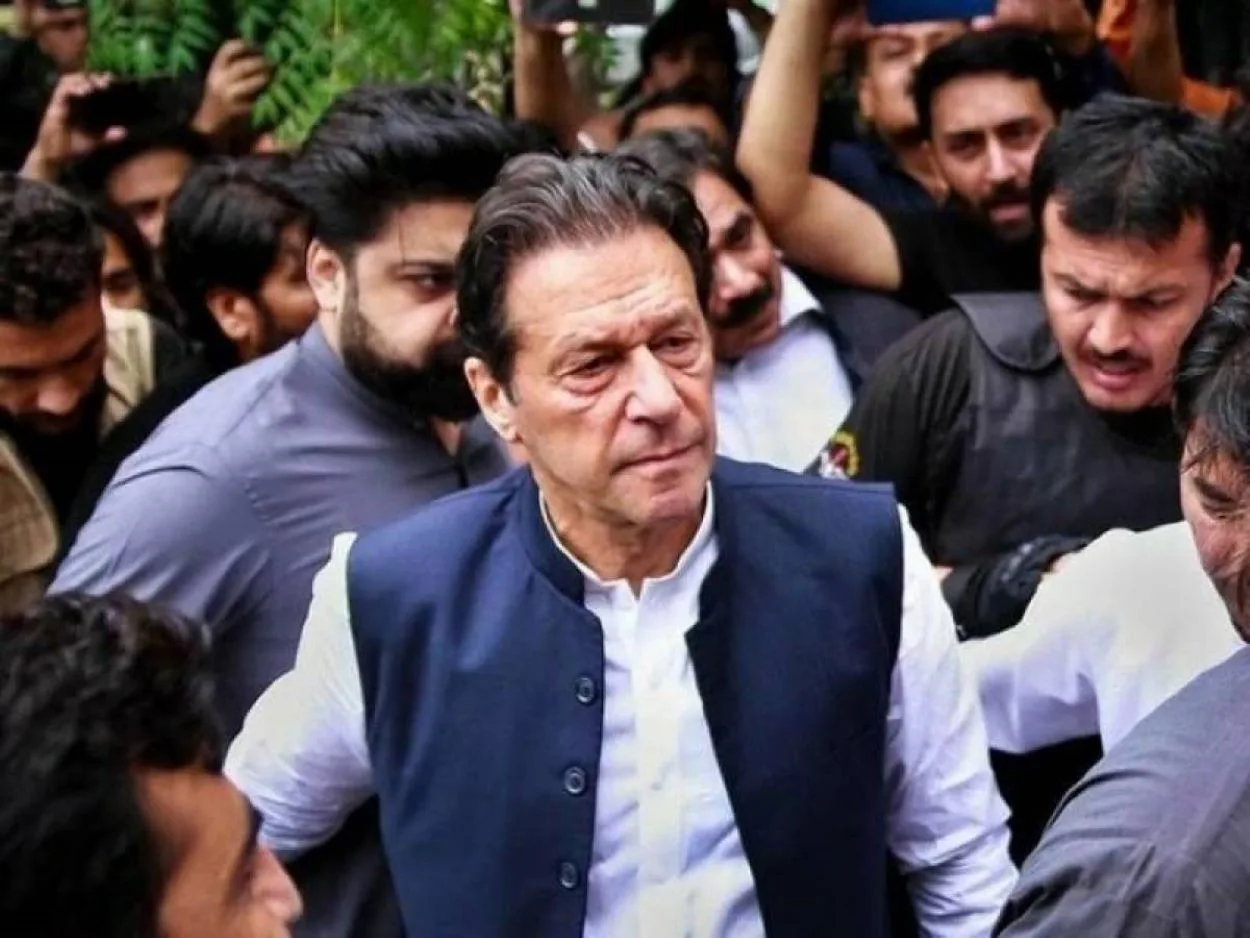An Anti-Terrorism Court (ATC) in Lahore on Tuesday issued a non-bailable arrest warrant against the Pakistan Tehreek-e-Insaf (PTI) Chairman Imran Khan and other party leaders.
According to the reports, the ATC took a major step and issued non-bailable arrest warrants for Imran Khan and other PTI leaders. Other PTI leaders include Hammad Azhar and Mian Aslam Iqbal, among others. This move signifies a significant escalation in the legal proceedings against the leadership of one of Pakistan’s major political parties.
Arrest Warrants of Imran Khan
After hearing the investigating officer’s arguments, the ATC issued non-bailable arrest warrants against these figures. The decision infers that the court deemed the evidence and arguments presented by the investigating officer as significant enough to warrant arrests.
In context to the charges against the accused, it has been revealed that the cases were filed at two different police stations in Lahore. The Naseerabad and Model Town police stations were where the initial complaints were lodged against the PTI Chairman and his fellow party leaders.
Details regarding the nature of these cases, the evidence presented, and the next steps in the legal proceedings are yet to be disclosed.
It remains to be seen how this development will impact the PTI leadership and the overall political dynamics within the country.
Read: Election Commission of Pakistan to Indict Former PM Imran Khan in Contempt Case
The former Prime Minister and several other party leaders have been embroiled in various legal troubles, including terrorism and corruption charges, since his removal from office through a no-confidence vote last April.
The situation escalated with the detention of the ex-PM, which triggered violent protests by party supporters, resulting in significant damage to public properties and loss of lives.
In the aftermath, key party figures distanced themselves from the party, with many criticizing the leadership’s approach.
The National Security Committee responded by reinforcing a zero-tolerance policy for such violent actions, endorsing the decision to prosecute those involved under the Army Act, Official Secrets Act, and other relevant laws.






